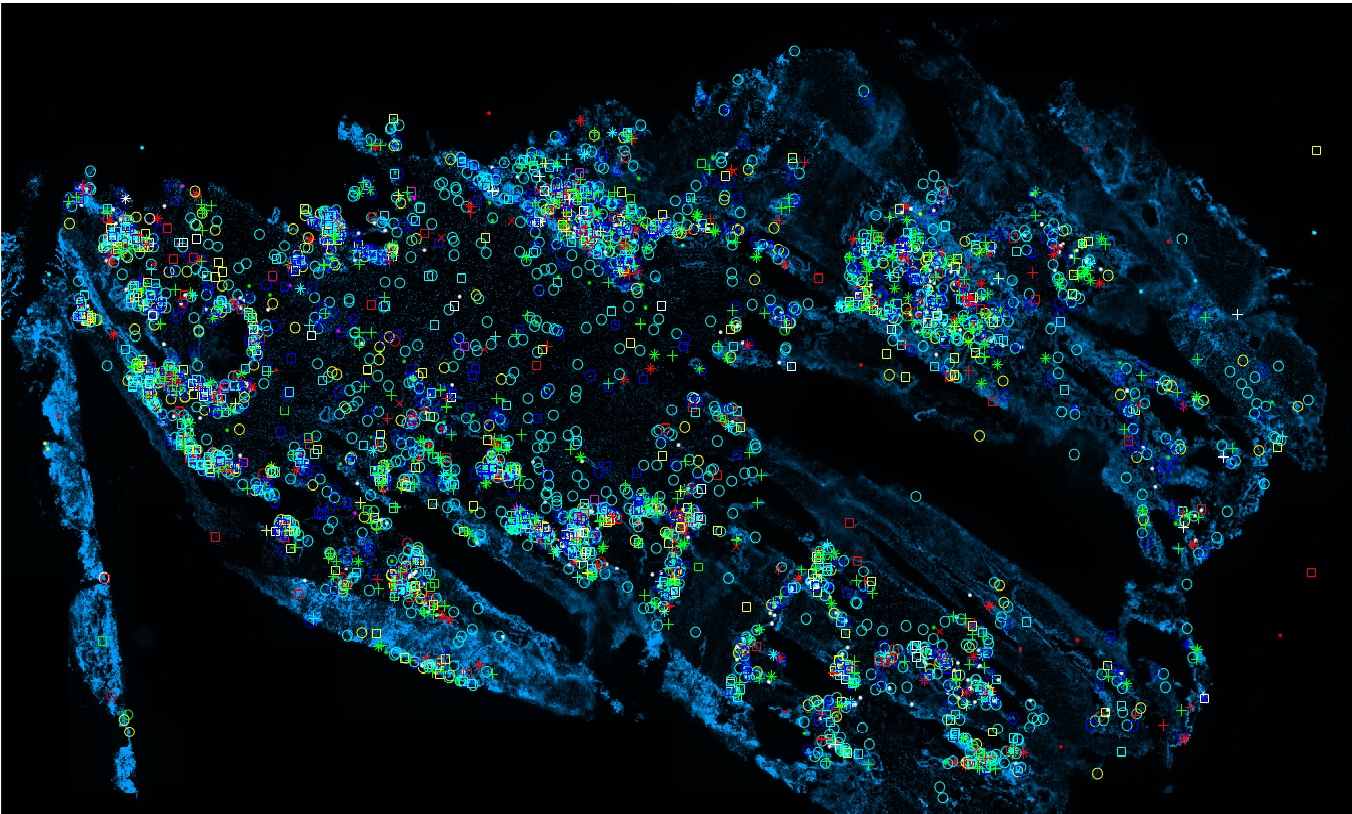Illustration (click to hide):

Project Description
Clonal evolution, whereby a single cell in the tumor randomly acquires a mutation conferring a survival benefit followed by expansion of the offspring of this cell in the tumor as a consequence of selection, is a hallmark process of tumorigenesis and acquisition of drugs resistance. Sequencing technologies could potentially be used to track the evolution of tumor cell clones for scientific and diagnostic purposes without knowing which specific nucleotide level mutations the individual patient tumor has acquired. During tumor evolution, most of tumor type specific chromosome losses occur through a loss of heterozygosity (LOH). Expanding sub-clones driven by LOH events could be identified by in situ sequencing, if genes with prevalent polymorphisms located on chromosome tips subject to LOH are identified, the expression of such genes is stable and consistent across normal tissues and tumor types. We have developed in situ sequencing technology to perform mRNA expression and profiling directly in sections of tissue from biopsies. This sequencing technique allows targeted multiplex expression profiling analysis across fixed tissues at cellular resolution. We are applying this new technique of combining the “padlock probes” and new barcode-based DNA sequencing chemistry to determine the spatial mRNA expression profiles with cellular resolution in tissue sections. The obtained expression profiles are further aligned to histological features and cell types of the tumor. Thus, we are generating complex mRNA expression maps in tumor tissues. This special resolution is crucial step to refine LOH markers and to enhance the potential to identify new diagnostic, prognostic and predictive biomarkers for cancer, with a great impact on the clinical management of patients with cancer.
Involved researchers in the entire project:
Olga Surova 1, Ivaylo Stoimenov2, Luis Nunes2, Christoffer Mattsson Langseth1, Tobias Sjöblom2, Mats Nilsson1
1Science for Life Laboratory, Department of Biochemistry and Biophysics, Stockholm University.
2Department of Immunology, Genetics and Pathology, Uppsala University
Project Information
-
BIIF Principal Investigators
- Anna Klemm
External Authors
Olga Surova -
Date
2021-02-21 🠚 Current